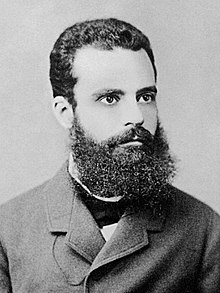One hundred years ago today, Vilfredo Pareto passed away in his villa near Lausanne. I’ve writen a little piece for Project Syndacate on him and this anniversary. Also a new entry is up in the Encyclopedia at Libertarianism.Org. Pareto’s is a household name for many, because of the notion of Pareto optimality or the so-called Pareto principle. His contributions go way beyond that. Pareto was a pioneer in economics, political science, and sociology, and he contributed original ideas of all three fields. This is all the more surprising, when you consider that he never gave a University lecture before he was 45.

For the first part of his life, Pareto, who studied mathematics and engineering, was a businessman, a CEO. In his spare time, he became an advocate of free market liberalism, contemplated a career in politics (which luckily for us all, it wasn’t to be), wrote and published extensively, in Italian but also in French. He befriended Gustave de Molinari and published on the Journal des économistes en France. He read an article, there, about Benjamin Tucker’s Liberty and sent the American anarchist journal a few correspondences. He admired English liberalism, Cobden and Gladstone, and was saddened by how liberty was watered down in England, too.
A number of Pareto’s writings are translated into English and could be found on archive.org. More recently, a few books worth reading were added to the body of Pareto scholarship. For one thing, now we are lucky we have the three volume biography by Fiorenzo Mornati (available in English from Palgrave Macmillan), which is a superb examination of Pareto’s thinking and its evolution through time. A critical edition of the Manual of political economy was published a few years ago, thanks to Aldo Montesano, Alberto Zanni, Luigino Bruni, John S. Chipman, and Michael McLure. This year, Christopher Adair-Toteff edited a collection of essays on the occasion of the centennial.
A few years ago, we had a Pareto conversation on LibertyMatters. Giandomenica Becchio, Rosolino Candela and Richard E. Wagner contributed to it.
This is a good day to pick up a Pareto’s book.


READER COMMENTS
Mark Brady
Aug 19 2023 at 6:43pm
“Karl Popper dubbed Pareto the “theoretician of totalitarianism”, but, according to Renato Cirillo, there is no evidence in Popper’s published work that he read Pareto in any detail before repeating what was then a common but dubious judgment in anti-fascist circles.”
https://en.wikipedia.org/wiki/Vilfredo_Pareto#Fascism_and_power_distribution
Alberto, what is your take on this frequently discussed topic?
Comments are closed.